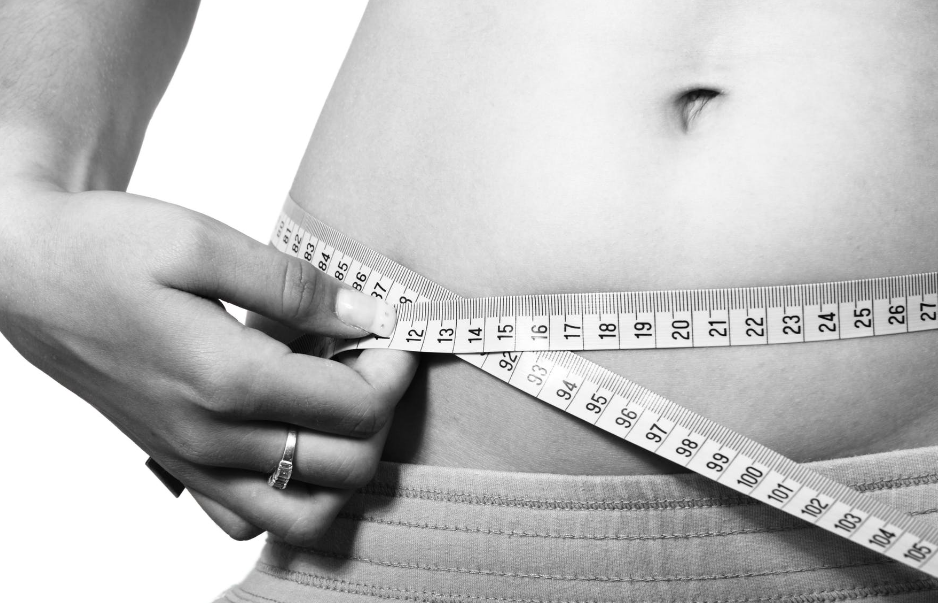Most people assume it’s a poor diet or a lack of exercise that causes weight gain. While this is true, there are other reasons for gaining weight—hormonal imbalances. Hormones, created in the endocrine glands, are chemical messengers in the body. Basic needs like hunger, reproduction, emotion, and mood are controlled by these messengers. When there’s too much or too little of certain hormones, losing weight becomes more challenging. Truly understanding what role hormones play in weight loss will help you take control of your health and life.
This article will look at the hormones that promote weight gain and how to avoid them.
Cortisol
Cortisol is a hormone that controls your body's fight-or-flight response. Known as the stress hormone, it works with your brain to control your mood, emotion, and fear. It's produced in the adrenal glands above your kidneys, and amounts vary day by day. When a person's experiences fear or stress, more is created to help manage the crisis, but when the situation eases, levels lower. However, if the pressure is chronic than health problems can occur. One of them is the ability to lose weight.
Insulin
Insulin is produced by the pancreas and secreted throughout the day. Insulin allows your blood cells to take in blood sugar for energy. Insulin also has another critical function. It allows the fat cells to store fat and prevents stored fat from being broken down. Chronically elevated blood glucose levels can lead to health problems like being insulin resistant and obese. Overeating processed foods loaded with sugar cause insulin imbalances and inhibiting the body's ability to lose weight.
Estrogen
Estrogen in connection with women's health is an important hormone; although, men produce estrogen as well. Estrogen is a sex hormone necessary for regulating a woman's menstrual cycle and manufactured in the ovaries.
Estrogen levels vary throughout a woman's life. In puberty, levels of estrogen increase to encourage fat storage and fertility and amounts decrease during menopause. Low estrogen causes menopausal weight gain, hot flashes, and night sweats. Studies show that overweight women have excess estrogen. When you fix your hormones, your body's ability to lose is optimized.
Progesterone
Another important sex hormone is progesterone. Progesterone is also produced in the ovaries and helps regulate a woman's menstrual cycle and fertility levels. The sex hormone also helps sustain pregnancies by helping with implantation in the uterine walls. Levels of progesterone decrease during menopause and like estrogen imbalances can lead to menopausal symptoms like unexplained weight gain, thyroid imbalances, hot flashed, and night sweats.
Testosterone
Testosterone is an essential hormone for men's health. It's produced in the testicles and female ovaries. Testosterone is responsible for building muscles, body hair, deeper voice, and other primary male features. The amount of testosterone increases during puberty and begins to decrease in adulthood. By the time men reach their 40s levels drastically. Low levels are connected with low sex drive, erectile dysfunction, and obesity.
Leptin
Fat cells produce leptin. It's a satiety hormone, meaning it makes you feel full. It does this by communicating with your hypothalamus, which regulates food intake. Leptin tells your body there's enough fat in storage, and the body responds by not overeating. High leptin levels would typically be positive for normal-weight people, but for those obese, it indicates leptin resistance. The leptin fat cell messenger isn't working correctly, and the mechanism telling your body that you're full isn't working, leading to overeating and weight gain.
Ghrelin
If your stomach is growling, you're experiencing the hunger hormone; otherwise, known as ghrelin. The hunger hormone is highest before eating and decreases once satiated. In obese people, studies have shown that ghrelin only decreases slightly. The hypothalamus doesn't receive the message to stop eating; therefore, increasing the risk of weight gain.
Peptide YY (PYY)
Peptide YY (PYY) is a stomach hormone that controls appetite. Studies show that patients with lower levels of PYY felt more hungry and ate more. More studies need to be done, but evidence suggests that PYY plays a crucial role in controlling appetite.
Now that we understand the critical role some hormones play in promoting weight gain, let's look at how to mitigate and avoid hormonal imbalances.
Reduce Stress
Researchers have long known the connection between stress and many health conditions; one of them being it causes people to gain weight. Also, one common activity for those who feel stressed is overeating; commonly called stress eating. Finding ways to relax can be hard, but sage medical advice is to try the following:
- Listen to music
- Eat a balanced diet
- Consistent exercise
- Meditate
- Work less
Healthy Diet
Eating a balanced diet with plenty of fruits and vegetables is the best natural method for avoiding excess hormones to run rampant. Also, included lean proteins, healthy fats, and other foods that encourage a body balance and weight loss. When you consume high levels of fast food, red meat, and fried foods you create higher levels of insulin, cortisol, estrogen, and other hormones, leading to mixed messages from your stomach to your brain.
Hormone Replacement Therapy
Hormone replacement is when you supplement with hormones like estrogen, testosterone, or progesterone to provide a body balance. A more natural option is bioidentical hormone replacement therapy (BHRT). BHRT mimics the exact hormones in your body and replaces them with natural ones.
People turn to hormone therapy for many reasons including weight gain. Other causes include a lower sex drive, hair loss, weak muscles, and dry skin. Hormone replacement therapy is controversial for menopausal women because some side effects have been reported. However, women who undergo treatment also say that menopausal symptoms have been relieved. When you have a hormonal imbalance, BHRT can help you live your life to the fullest.
Hormones play an integral role in regulating appetite and fat storage. When hormonal imbalances occur, it promotes weight gain. Losing weight is challenging by itself, but harder when low or high levels of essential hormones responsible for weight gain are high. Finding a balance is vital.
Hirsh, S. P., Pons, M., Joyal, S. V., & Swick, A. G. (2019, March 25). Avoiding holiday seasonal weight gain with nutrient-supported intermittent energy restriction: A pilot study | Journal of Nutritional Science. Retrieved April 7, 2019, from https://www.cambridge.org/core/journals/journal-of-nutritional-science/article/avoiding-holiday-seasonal-weight-gain-with-nutrientsupported-intermittent-energy-restriction-a-pilot-study/BB75E086275817F932BEFD317F35EE2C
Karra, E., Chandarana, K., & Batterham, R. L. (2009, January 01). The role of peptide YY in appetite regulation and obesity. Retrieved April 7, 2019, from https://www.ncbi.nlm.nih.gov/pmc/articles/PMC2670018/
Low Testosterone and Your Health. (n.d.). Retrieved April 7, 2019, from https://www.webmd.com/men/what-low-testosterone-can-mean-your-health#1
Shanik, M. H., Xu, Y., Škrha, J., Dankner, R., Zick, Y., & Roth, J. (2008, February 01). Insulin Resistance and Hyperinsulinemia. Retrieved April 7, 2019, from http://care.diabetesjournals.org/content/31/Supplement_2/S262
Stress may add bite to appetite in women: A laboratory study of stress-induced cortisol and eating behavior. (2000, November 03). Retrieved April 7, 2019, from https://www.sciencedirect.com/science/article/pii/S0306453000000354?via=ihub
Vicennati, Valentina, Ceroni, Luana, Gagliardi, Lorenza, . . . Renato. (2002, August 01). Response of the Hypothalamic-Pituitary-Adrenocortical Axis to High-Protein/Fat and High-Carbohydrate Meals in Women with Different Obesity Phenotypes. Retrieved April 7, 2019, from https://academic.oup.com/jcem/article/87/8/3984/2847416



